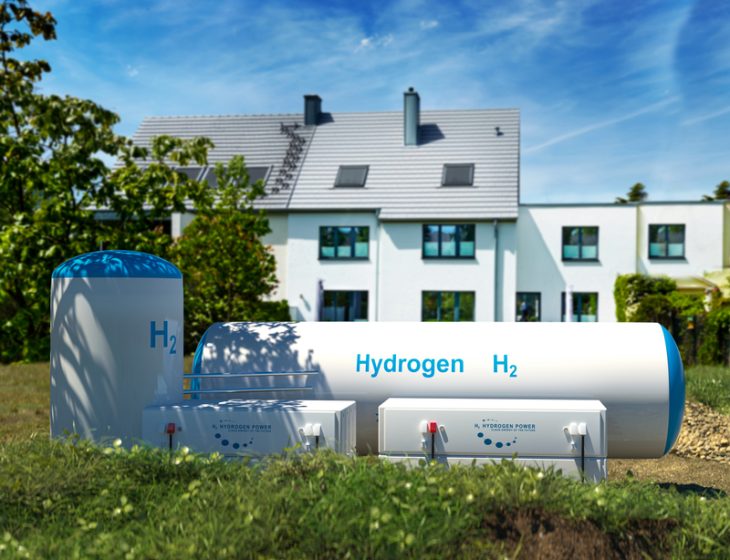Delgaz Grid, a member company of the E.ON Romania group, presented on Wednesday, March 27, to the representatives of the Ministry of Energy and ANRE the final conclusions of the “20HyGrid” pilot project, through which it was tested, both in laboratory conditions and in the field , the technical feasibility of supplying homes with a mixture of natural gas (80%) and hydrogen (20%) through the current natural gas infrastructure, in order to identify a solution for the partial decarbonization of the heating sector.
The main conclusion of the project, carried out for the first time in Romania, is that the use of the mixture in the existing distribution networks, installations and devices of use at customers, without the need for any modification of them, is possible from a technical point of view and without additional risks in compared to the use of natural gas.
The main components of the existing natural gas distribution network are already ready for hydrogen. At pressures below 16 bar there are no fundamental limitations for hydrogen supply in terms of tightness, materials and functionality of network elements.
At the same time, the concentration of the relevant components of combustion gases, carbon monoxide and nitrogen oxide, decreased significantly compared to that recorded for 100% natural gas. In the case of condensing thermal plants, the concentration of carbon monoxide decreased with values between 23-52%, respectively with values between 30-50% for the concentration of nitrogen oxides, these being average values for all condensing thermal plants tested, at minimum and maximum flow rates. In the case of classic thermal plants, without condensation, the nox reduction values are lower, considering the older manufacturing technology.
“Green gases improve people’s lives, providing even better comfort in the long term because they protect the environment at the same time. The 20HyGrid project shows that our natural gas distribution networks play a key role in transporting green gas to industry, households and wherever it is needed. We must act now, together with the authorities and the other players in the market, to capitalize on the huge potential and all the specific advantages that Romania has to become a regional hydrogen hub, a relevant player in the market, meeting the conditions throughout the chain value of the new energy vector,” said Volker Raffel, CEO of E.ON Romania.
“The results of the pilot projects are encouraging and offer us very good prospects for reaching the targets assumed by Romania within the energy and climate policy of the European Union. Through the National Recovery and Resilience Plan, the Ministry of Energy is currently finalizing the strategic and legislative framework that facilitates investments in the production and use of green hydrogen. At the same time, we have allocated funding of over 1 billion Euros until 2030, from the Fund for Modernization and PNRR, to support investments for the development of the entire value chain of hydrogen from renewable sources”, added Sebastian Burduja, Minister of Energy.
“An important step in the energy transition is the implementation of hydrogen technologies. We welcome with great interest the project developed by Delgaz Grid/E.ON group, because it can provide the necessary practical basis for the transposition of regulations in this field, a new field in Europe that requires a careful approach to technical conditions and specific standards, in order to ensure the conditions of safety in operation. It is a starting point in the use of a mixture of 20% hydrogen and 80% natural gas in distribution networks with strict compliance with all technical and safety conditions of the population,” pointed out George Niculescu, president of the National Energy Regulatory Authority (ANRE).
The tested devices, in number of more than 260 – condensing and conventional thermal power plants, convectors, hot water preparation devices (APAC), stoves, burners from heating and cooking stoves, worked properly, without relevant differences from a technical point of view compared to the behavior when using natural gas in terms of stability, noise, etc. Several models of condensing thermal plants (from different manufacturers) were tested, which worked without problems even with natural gas mixture and higher volumes of hydrogen in natural gas, respectively 30 and 35%.
All atmospheric burners performed similarly when burning natural and mixed gases, with no differences in appearance, stability, flame uniformity, noise, etc. and without technical problems of operation both at minimum and maximum flow.
